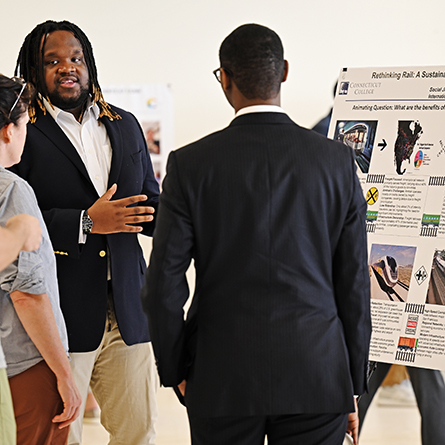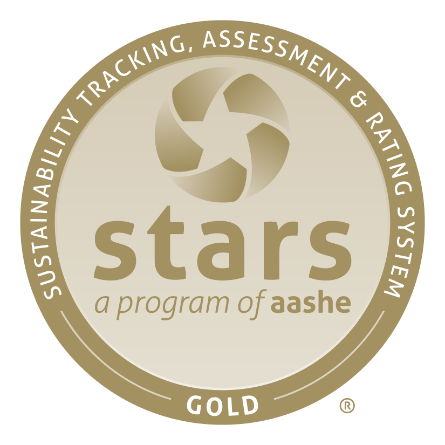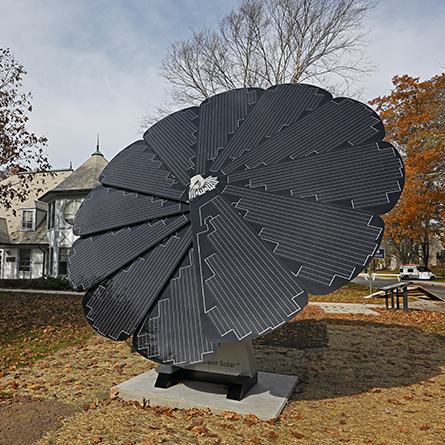
Connecticut College receives STARS Gold rating for sustainability
Connecticut College has received its second consecutive Sustainability Tracking Assessment & Rating System (STARS) Gold rating from the Association for the Advancement for Sustainability in Higher Education. The program scores participating institutions on campus sustainability in five areas: academics; engagement; operations; planning and administration; and innovation and leadership.
Douglas M. Thompson, the Rosemary Park Professor of Geoscience and Environmental Studies and Suzi Oppenheimer ’56 Faculty Director of the Office of Sustainability at Conn, said the STARS rating is “the most comprehensive way to assess sustainability,” with more than 350 institutions currently participating.
“[Our score] is reflective of the deep connection between sustainability and the College—it’s a history that goes back decades,” the professor asserts.
Director of Sustainability Margaret Bounds, who describes STARS as “sort of the US News and World Report’s college rankings but for sustainability,” said the College has focused on improvements in several areas since joining the STARS ranking program in 2014 and noted that this year’s report achieved a whopping 30+ point increase over Conn’s 2018 Silver rating report.
“One area we definitely improved in was staff engagement,” she says. “We’ve always done very well with student engagement, but in our first two reports, we basically got zero points for staffing. So, in that intervening time, we started the Green Office Certification Program, started offering more training opportunities—like several Lunch and Learn sustainability trainings—and we’ve worked with HR to put some information in the orientation materials.
Bounds said another area of focus has been sustainable investments. “The Board of Trustees adopted language to encourage sustainable investments. That was a big step,” she said.
Conn’s total score of 71.19 is higher than several comparable institutions, including most participating NESCAC schools.
“In engagement and in academics, we’re exceeding our peers,” Bounds said.
“The number of Conn courses with a sustainability listing has increased,” Thompson notes. “The fact that we now have a searchable database so students can find courses with a sustainable element is cutting edge. I don’t think many schools like ours have that.”
Both Bounds and Thompson identify greenhouse gas emissions as a target area for improvement as Conn looks toward the 2027 report.
“We’ve identified a net zero goal for 2030 for emissions,” Thompson said. “That’s a very aggressive goal. If we reach the 2030 goal and truly achieve carbon neutrality, that’d be fantastic.”

